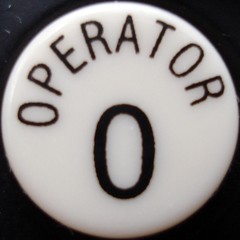- The network of international health care professionals linked together after experiencing outbreaks like the SARS.
- The solar system – which networks planets
- Evolution – as a self-assembled network that led to higher life forms on Earth
- The brain – a dynamic, thinking and emotional network
- The Internet – speed of information flow and repository of data
I think you might agree with me that those are all good examples. At least one important and immensely successful network is missing off this list: the telephone network. In the last 125 years, this network has evolved and adapted to serve the needs of the industrial revolution all the way into the 21st century and while I am no expert on predicting the future, I am predicting this network will continue to grow in its importance for generations to come.
This being said, the telephone network is slowly merging with the data network. So maybe in the future, all communications networks will be merged together with so much overlap and interconnectedness that distinctions will be difficult to identify.
 Anyway, is this good for distance learning? YES! The telephone is important for distance learning. Not only is it a simple and reliable way for an instructor to communicate with a student but it also provides students access to a data network on some telephones. For example, I’m writing this blog post from my iPhone. It’s iFun! Access to this data network on a telephone exponentially increases the functions that a student can perform in support of their own learning using a telephone.
Anyway, is this good for distance learning? YES! The telephone is important for distance learning. Not only is it a simple and reliable way for an instructor to communicate with a student but it also provides students access to a data network on some telephones. For example, I’m writing this blog post from my iPhone. It’s iFun! Access to this data network on a telephone exponentially increases the functions that a student can perform in support of their own learning using a telephone.Can you suggest a candidate for the most successful network in history? If so, can you explain how this network might support learning in a practical sense?
Note: image attribution here.
 Eric's ramblings, experiences and random thoughts about e-Learning, distance education and Educational Technology.
Eric's ramblings, experiences and random thoughts about e-Learning, distance education and Educational Technology.






2 comments:
I msut respectfully disagree. I think (as I post on my blog: http://www.arieliondotcom.wordpress.com) that the most successful network in history is GOD Himself. He is the perfect network, three and yet one, in perichoresis of perfect balance of sharing, oneness and Personhood. But combining those two thoughts (yours and mine) reminds me of that old song, "Operator, get me JESUS on the line!" :)
Oh, and I'm always amused (or bemused) when folks (not you in this article but other articles I've read in the course and this week) seem to say that those people of faith/"religion" are somehow on a lower branch of the philosophy tree. I picture a pouting, wayward child throwing tantrums out in the yard not wanting to come into the house of faith because they are afraid of the discipline inside. :)
Well, your summary of "the most successful" discussion has left out candidates that I suggested, like "disease itself" or "The Catholic Church".
I wouldn't call God the "most successful network" because networks are man-made things, and I think they should be defined as with human agency and with human purpose, divinely inspired though they may be.
That's why I say "The Roman Catholic Church" just because it has networked all over the globe and stayed in power and influenced many nations and people.
You could make this larger and call it "Christianity" if you like.
Religions are far more populated and influential than things like "The Internet" or "the SARS scientist". You may not find them culturally or politically attractive, which may be why you left them out, but "successful" doesn't mean "cool scientific or technological things I like" -- unless, of course, you're defining it that way. But if "successful" means "it spread near and far" and "it had a large influence" and "it persists over time", you would have to say things like "Christianity".
If you are going to be putting in all kinds of things into this term, then diseases themselves sure beat any human network.
Post a Comment